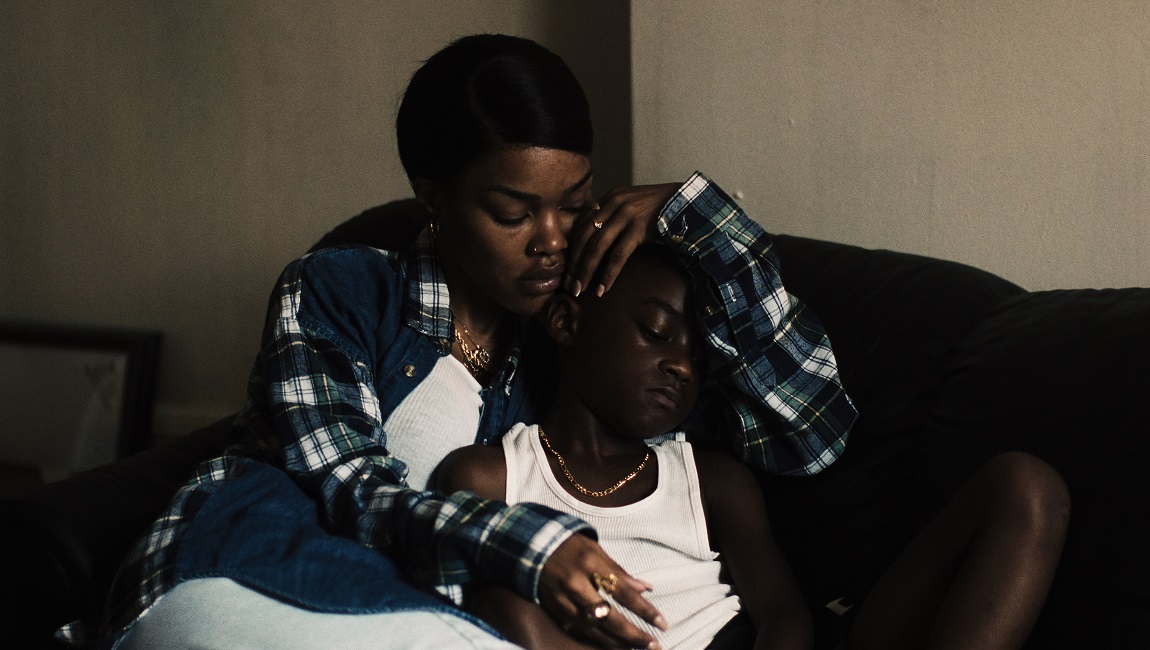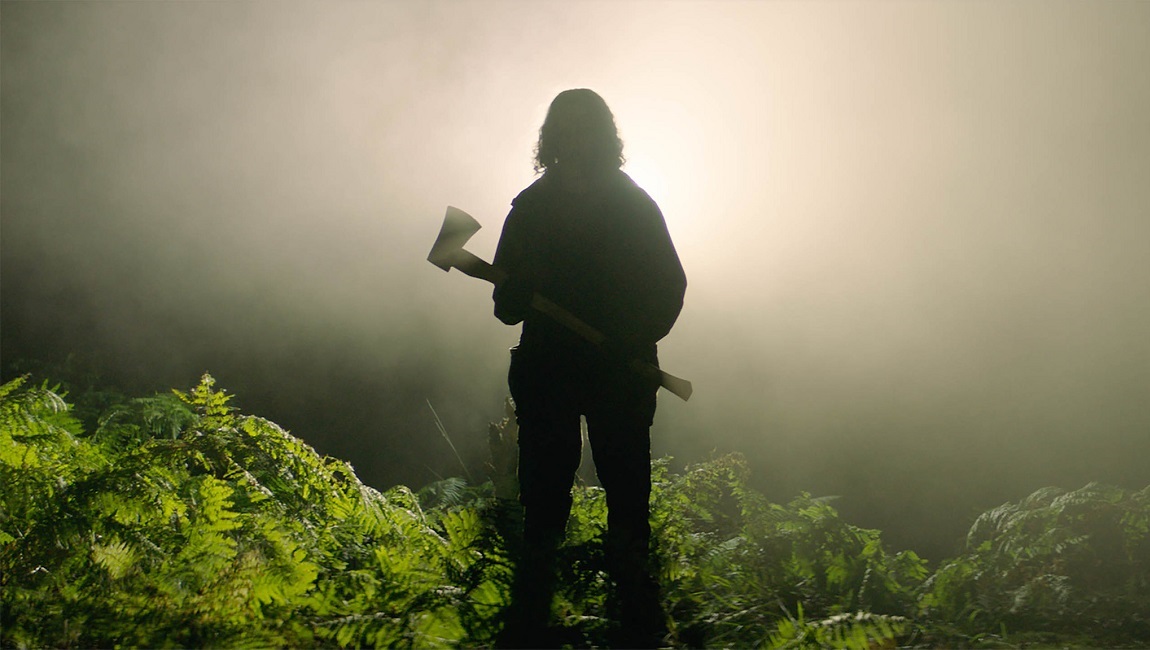Once in a while, a debut film comes along that announces the arrival of a potentially major new talent. A.V. Rockwell’s freshmanfeature, the Teyana Taylor-starring A Thousand and One, possesses a sagacious maturity that’s immediately arresting. It’s clear Rockwell knows what the hell she’s doing behind the camera — and, in fact, she’s been doing it for a while. The rising Tisch-bred writer-director has already been heralded as a trenchant cinematic voice, confronting the complexities of race, personal identity, and systemic oppression in an array of short films. These thematic concerns carry into this feature-length offering, a heart-rending, subtly epic drama that balances its raw vision of urban struggle with an empathetically poetic exploration of the bonds that sustain the folks working within that hardship.
The film opens with Inez (Teyana Taylor) shelter-hopping after a stint behind bars at Rikers. One day, she encounters Terry, the six-year-old son she lost contact with and who is now in the foster system. Recalling the early life turbulence she experienced in foster care and keen on cementing a single meaningful tie, Inez gets Terry to agree to living with her as she reconstructs her life, effectively kidnapping him. She successfully builds a stable situation for the two of them, their family expanding as the years pass and Terry grows into a swaggering, sensitive teenager. Yet the secret at the heart of their new life threatens to undo everything: Terry struggles, wearing the mask of a false identity, and Inez strains to keep it all together.
Part of the appealing mystique of A Thousand and One is that it instantly feels like part of a larger canon. The lushly warm daytime shots of city life, comprising a number of the establishing montages, evokes the sizzling, sun-drenched neighborhood scenes throughout Spike Lee’s Do the Right Thing. The cooler hues and intimate close-ups found in darker, bleaker sequences are reminiscent of some of the compositions Barry Jenkins and his team achieved in Moonlight. Scenes in this film are often clipped, vignette-style, finding quiet elegance and dignity within dreary interiors. There’s a lyrical rhythm in the arrangement of bodies, who the camera is capturing and where and for how long, that harkens back to the bracing work of Charles Burnett. A Thousand and One is a modern-day Black story suffused with Black cinematic history. The film’s deliberate pace allows the viewer to appreciate the details, to scrutinize like they’re appraising a preserved artifact, one of unmistakable artistic integrity.
A long-time multi-hyphenate, Teyana Taylor boasts some serious acting chops in the leading role. Inez brims with Taylor’s effusive spirit, her brazen attitude a sword protecting a softer, earnest side that has weathered years of pain. Her wit and noble nature warm the audience to her quickly, yet the most indelible scenes here are the ones where Inez is subdued or quietly coping with pain, her emotions closely guarded before bubbling to the surface (even a quiet scene of Inez munching on Cup Noodles proves subtly transfixing). Terry, on the other hand, is portrayed by three actors: Aaron Kingsley Adetola at 6, Aven Courtney at 13, and Josiah Cross at 17. All perform admirably (as do most of the main cast in general, with a particular nod to William Catlett as Inez’s lover, Lucky). But Cross in particular is splendid, playing Terry with a charming bashfulness. At the climax, Inez and Terry launch into a devastating tête-à-tête, and Cross does more than hold his own, with bursts of palpable despair and hurt punctuating his crumbling, stolid façade.
Early on, one disapproving character chastises Inez, saying, “You want to be taken serious, be from Harlem, not of Harlem.” It’s a loaded sentiment worth unpacking if one bothers to pause, but as soon as the line is delivered, the scene shifts. We get snippets here and there of talking heads and public figures discussing New York’s culture and political future, typically delivered via radio call-ins and television news broadcasts, more so to signal jumps in time than initiate any sustained discourse. Allusions to gentrification and police misconduct lurk at the periphery, but these ruinous forces of injustice get little further exploration and ultimately serve as textural details that authenticate Harlem’s tough reality. Later, the film juggles screen time between Inez and Terry, as the teen wrestles with what influences he’ll let inform his personal brand of masculinity. In a longer film, or a tighter one, more time could have been dedicated to their character journeys intersecting with the systems of power satisfied with boxing them in.
It’s fair to say, then, that the polemic power of the film’s critiques leaves a little to be desired — this is a debut after all, and Rockwell’s script and story pacing have a few kinks to iron out. But it’s the emotional, psychodramatic intensity Rockwell and co. capture that makes A Thousand and One such a moving success. It’s a movie about people, possessing a humanist veracity many will connect with, and anchored by potentially career-making performances. Get in on the ground floor now — Rockwell has nowhere to go but up.
Published as part of InRO Weekly — Volume 1, Issue 13.







